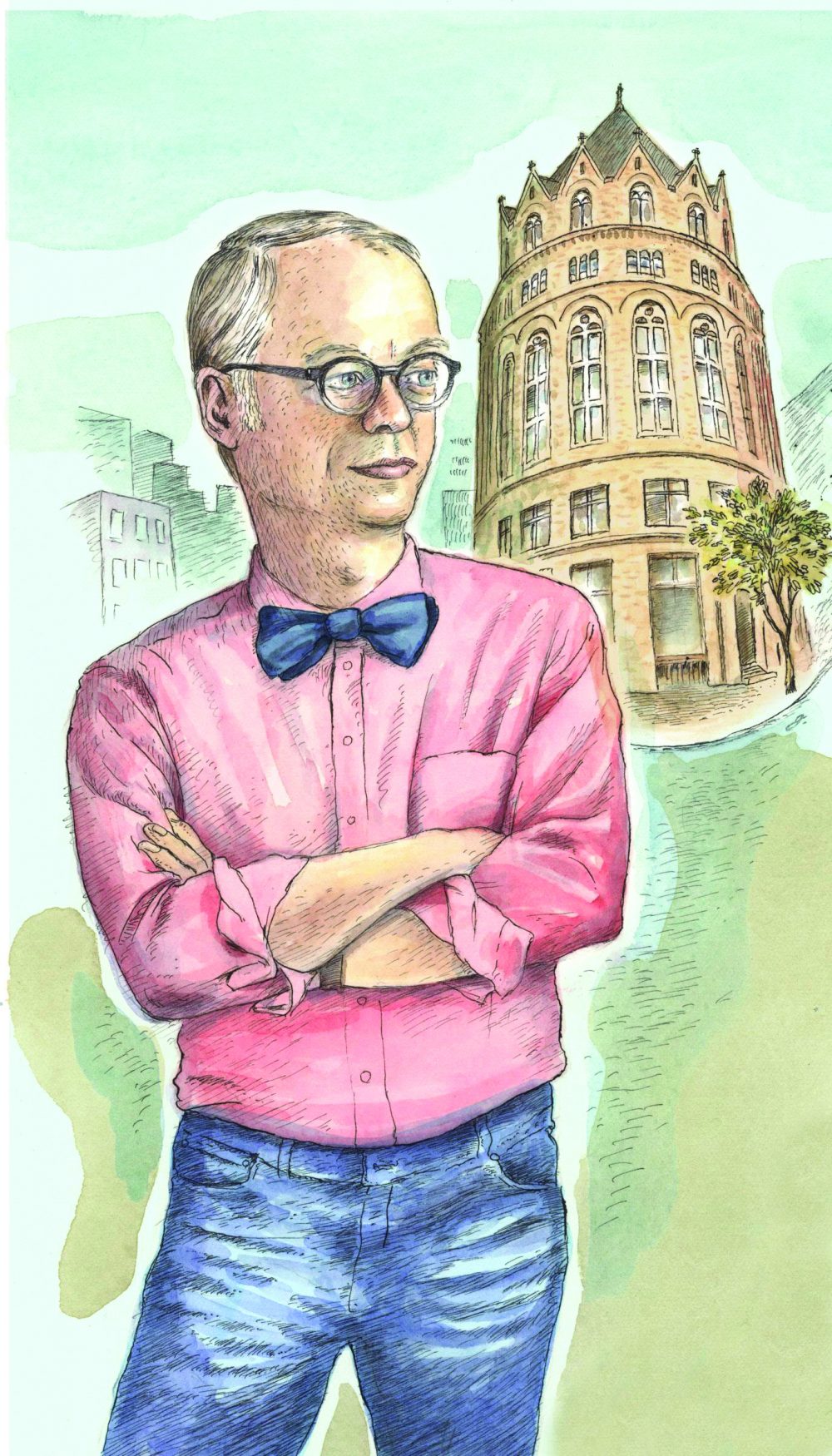Your email address is required to begin the subscription process. We will use it for customer service and other communications from Milk Street. You can unsubscribe from receiving our emails at any time.
Mezcal & Sympathy
Back to September-October 2019

Adam Gopnik, one of the regulars on Milk Street Radio and a staff writer at The New Yorker, recently authored a book about the history of liberalism entitled “A Thousand Small Sanities.” In it, he quotes the French philosopher Michel de Montaigne, who wrote “Virtue presupposes difficulty.”
That is a very Yankee take on life, I suppose. Vermont farmers, among others, believe that nothing worthwhile is easily done. Montaigne also had a quip regarding cats: “In nine lifetimes you’ll never know as much about your cat as your cat knows about you.” And about marriage: “A good marriage would be between a blind wife and a deaf husband.” Perhaps my favorite is: “Nothing is more firmly believed as what we least know.”
One might define travel as the best way to find out how much we don’t know. In this issue, there is a salad recipe from Iliana de la Vega, the head chef/owner of El Naranjo in Austin, Texas. She taught me that a good mole is made from three components: vegetables, spices and thickener; chocolate is only used in a mole negro, one of seven varieties of mole in the Oaxaca region.
Just outside of the town of Oaxaca, in Teotitlán del Valle, Reyna Mendoza explained to me that chilies are an infinitely variable vegetable from chilhuacle rojo to the chilcostle to the chontal to the beloved, local chile de agua. It’s not just serranos and jalapeños.
In Tokyo, I learned that kombu is not one thing, but has many different varieties from the mild hidaka to ma to the stronger rausu and rishiri, the latter used to make clear soup. In Beirut, tabbouleh often is made without any bulgur; just parsley. In Morocco, a tagine is a thrown-together affair so that the brightly flavored ingredients retain their individual character when served, the opposite of northern European cuisine. In Thailand, I learned the value of toppings: white pepper, fried shallots, ginger, scallions, cilantro and spicy chili vinegar. In Senegal, cooks taste-test food on the skin of the hand, a superior way of evaluating flavor.
One might note that these are minor, not soul-stirring, revelations. Fair point. And many of the deeper lessons are expected: “Cook with a cook and you make a friend for life,” for example. Yes, cooking is a universal language—perhaps countries should be run by cooks, rather than politicians, and we might all get along.
But perhaps Montaigne was right. Maybe the foundation notion, that cooking is universal language, is in fact more myth than reality. I am beginning to think that cooking is a starting point, not a shared philosophy. A Vermont farmhouse, a small Tokyo apartment kitchen, and an indoor/outdoor kitchen in Teotitlán del Valle, Mexico are, in fact, worlds apart. We share the knife work, the heat of the fire or stove, the seasoning of the dish and its eventual enjoyment. But the context, the perception of what actually is going on, could not be more diverse.
In Vermont, food was fuel, not a philosophy. In Japan, cooking is about energy and economy of movement, and, most of all, frugality—even using rice soaking liquid as a hand cream. And in Mexico, the local corn is toasted and ground for a yellow mole within the context of a family’s history. Past celebrations connect up through the present to inform the meaning of a dish. Zapotec cooking is the history of its people.
Standing in a small kitchen in downtown Oaxaca, Raquel Garzon was showing me her pressure cooker (used for tough meats), her spices and herbs, and her terra cotta cook pots. It rang of the familiar; I immediately felt at home. But therein lies the conundrum. We fly in for a few days, we visit for a few hours, we cook together and dine together, we make friends and have shared experiences. We risk coming away with the notion that we have some deeper understanding of a people and their culinary history. Garzon told me, with tears in her eyes, that she cooks to honor the memory of her mother. In her kitchen, the culinary waters run unexpectedly deep.
What also is true about liberalism, according to Gopnik, is that, at its heart, it engenders sympathy for others. Unlike other philosophies that are based solely on ideas, liberalism asks the question, “How does this affect real people?” This requires an understanding of how strangers to one’s way of life think and feel. Robin Russell Gaiser, author of “Open for Lunch,” told me recently that asking random people to lunch as she stands in line at fast food restaurants allows complete strangers to open up about their darkest secrets, from Vietnam to prison, from illness to death. This underscores the enormous power of sharing food, the creation of sympathy among strangers.
Sitting across the table from Garzon, enjoying yet another small glass of mezcal to toast her large and happy family, I realized that I had been given the opportunity to learn more than a new recipe. I was being offered sympathy for others, perhaps the most powerful philosophy of all in our long and troubled history.
September-October 2019
